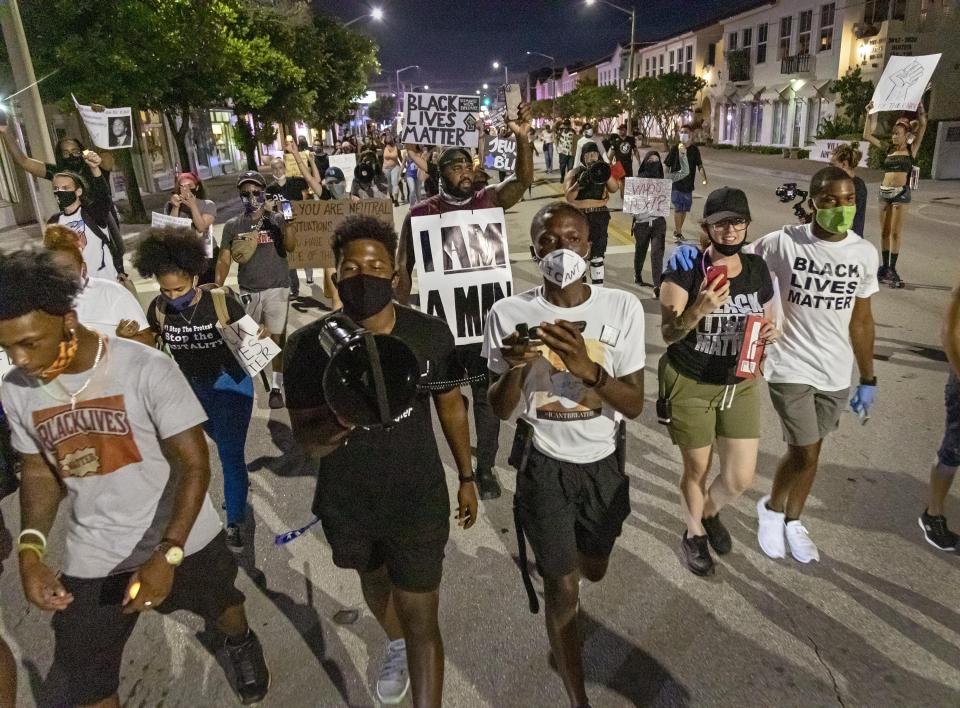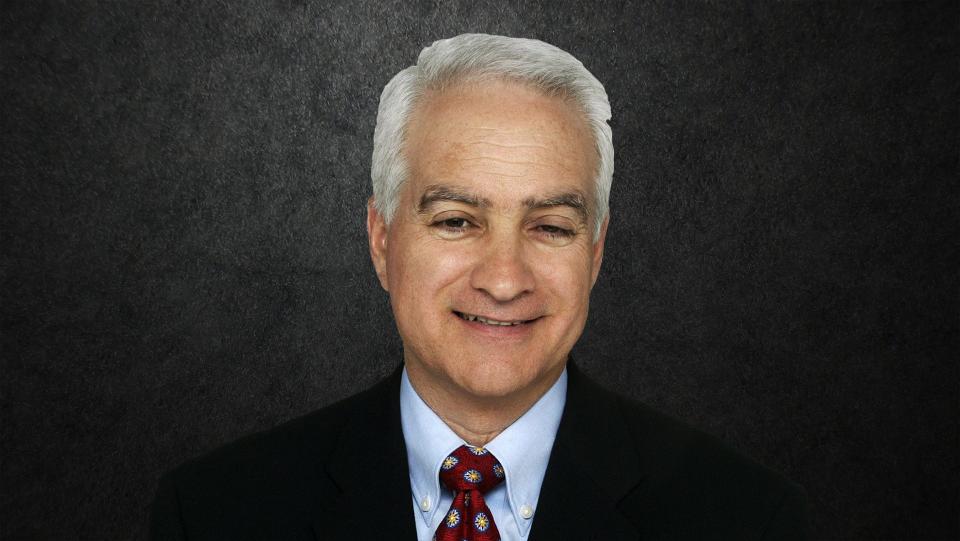To help DeSantis sooth white student guilt: Here are 10 perks slavery gave the enslaved.
- Oops!Something went wrong.Please try again later.
Editor's note: This story was originally published in July 2023.
I’d like to help Gov. Ron DeSantis, bless his heart, shield Florida’s white students from being taught the kind of history that makes them feel uncomfortable.
DeSantis has staked his teetering political reputation on eliminating “woke” education in Florida’s public schools.
He championed a law that prohibits Florida teachers from bringing up classroom discussions about America’s racial history that can cause white students to “feel discomfort, guilt, anguish or any other form of psychological distress” about their race.
When signing what was originally cast as the Stop WOKE Act, DeSantis said that no student should be “shamed because of their race.”
“In Florida, we will not let the far-left woke agenda take over our schools,” he said.

This has resulted in the Florida Board of Education adopting new teaching standards this month on the subject of slavery.
In part, Florida’s new teaching standards frame slavery as an employment opportunity that gave slaves a chance to learn valuable occupations free of charge.
“Instruction includes how slaves developed skills which, in some instances, could be applied for their personal benefit,” the new teaching standard says.
It also instructs teachers to highlight the “various duties” of slaves as “agricultural work, painting, carpentry, tailoring, domestic service, blacksmithing, transportation.”
Treating slavery as a vast deferred-compensation trade school is a good first step to addressing white-student discomfort.

But it clearly doesn’t go far enough.
And Gov. DeSantis is so busy roaming the country these days badmouthing story-telling drag queens, Bud Light beer cans, and the Disney World monorail, that he seems unprepared to properly defend the kind of history teaching he has unleashed in his home state.
When asked about Florida’s new teaching standards while campaigning in Utah, DeSantis became tongue-tied in defending the changed emphasis on slavery.
First, he said he had nothing to do with the new language — “I wasn’t involved in it” — then he took a stab at defending it.
“I think what they’re doing, I think what they probably are going to show is, some of the folks that probably parlayed, you know, being a blacksmith, into doing things later in life.
“The reality is that all of that is rooted in what is factual.”
Historians differ.

“This information lies by omission and lack of context,” wrote Heather Cox Richardson, an American history professor and 19th Century scholar at Boston College. “The idea of Black Americans who ‘developed skills’ thanks to enslavement, for example, erases at the most basic level that the history of cattle farming, river navigation, rice and indigo cultivation, southern architecture, music, and so on in this country depended on the skills and traditions of African people.”
DeSantis’ rocky response was made worse by the Florida Department of Education, which in a ham-handed attempt to do damage control, sent out a release naming 16 historic figures as blacksmiths, shoemakers, tailors and fishing and industry workers who “developed highly specialized trades” during their days as Black slaves.
But it turned out about half the people listed were never slaves, and some who were slaves had learned their trade when they were not enslaved.
Oops. Florida’s Department of Education “parlayed” an egg.
“They just threw out a bunch of names to make it seem like something good came of (slavery)," Andrew Spar, president of the Florida Education Association teacher’s union told the Tampa Bay Times. “The reality of it is, the facts don’t back up what they are saying.”
This is creating a void in the all-important task of recasting history to soothe potential white guilt in Florida.
We’re going to need a more full-throated response in defending Florida’s new lessons in teaching the benefits of slavery to slaves.

Fortunately, I’m a full-service Florida columnist who is willing to pick up the slack and do whatever I can to make white students feel better about our racial history. So here goes:
The Top 10 benefits of slavery to the enslaved in the United States:
1. Free Vitamin D
All that outdoor labor in the fields provided lots of Vitamin D, an essential vitamin that wards off cancer growth, controls infections, reduces inflammation and helps the body retain calcium and phosphorous, important for building strong bones. You’re welcome, slaves.
2. Daily choir practice
Long days of monotonous labor meant plenty of time to work on the harmonies to spirituals. More reasonable working hours would have hurt the quality of the music.
3. Job security
Lots of available work. No need to worry about unemployment or to harbor feelings of uselessness when you were needed sunup to sundown from childhood to old age.
4. Free lodging
Slaves got to live rent-free on the plantation.
5. Physical fitness opportunities galore
No need for gym memberships, pilates classes, or step aerobics. Slaves got plenty of daily exercise, especially those trying to run away.
6. Networking for young Black women
More: Cerabino: Woke or joke? Trying to feel the pain of straight, white men
Cynics may characterize the nocturnal visits of the white plantation owners as “rape,” but I’m sure the Florida Board of Education can come up with a more upbeat term, perhaps “involuntary sudden-courtship opportunity sessions.”
7. Participation in an efficient criminal-justice system
White students will just feel bad if we call them thousands of “lynchings.” It’s better to cast this fast-moving form of trial and sentencing as a marvel of jurisprudence that stands today as a benchmark of speedy-trial scheduling.
8. Opportunities to make new friends
More: Vendetta off the rails? Gov. DeSantis protects Floridians from Disney monorail
With many slave families being split up on different plantations, spouses and children frequently were kept from each other. This opened the door to new relationships.
9. Black lives mattered
They certainly mattered to the cotton industry, which relied on unpaid Black slaves in the United States to pick more than 2 billion pounds of cotton per year — two-thirds of the global supply — by 1860.
10. Juneteenth
If it weren’t for slavery, we wouldn’t have the day that celebrates the end of slavery, Juneteenth, as a federal holiday on June 19 every year.
Many of today’s Black Americans get a day off on Juneteenth for the generations of degradation and involuntary servitude that were experienced by their ancestors.
Sounds like an even trade.
Frank Cerabino is a columnist at The Palm Beach Post, a part of the USA TODAY Florida Network.
This article originally appeared on Palm Beach Post: DeSantis filters black history to ease white student shame in Florida.

